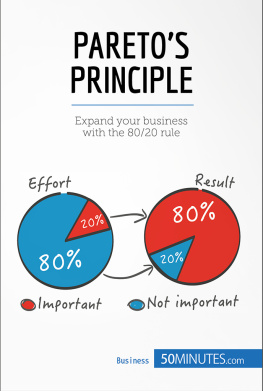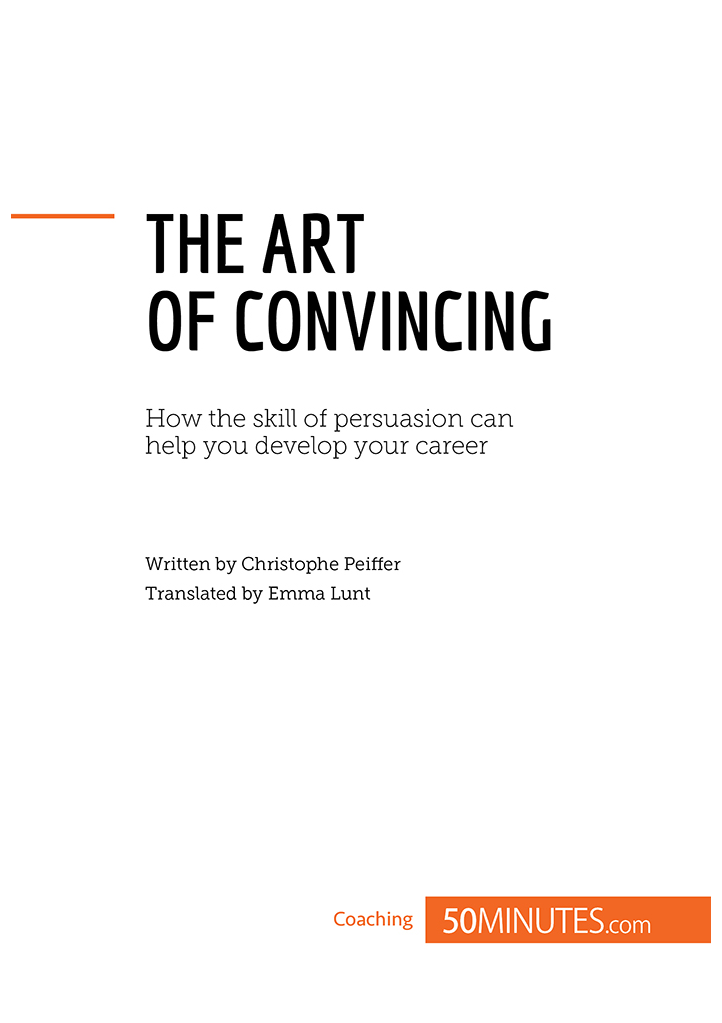We spend our lives trying to convince other people. From the young, dynamic middle manager who is trying to get a promotion to the parent who wants to make their child clean their bedroom, as well as the new graduate who is trying to land a job at a sought-after company, daily life is overflowing with situations in which arguing well is inevitable. Thus, knowing how to use this tool skilfully and ethically can become a substantial advantage in both professional and personal life.
That said, while for some persuasion is second nature (they could sell ice to an Eskimo!), for others, getting a glass of water at a bar in the middle of the desert seems impossible. Nonetheless, there are some fundamental principles to help you argue in order to defend the things you care about. These basic elements will require your know-how as much as your social skills. Subtly bringing together these two cornerstones of interpersonal relationships will give you a considerable advantage in all situations where you wish to win over a person, a team or your listener to your way of thinking.
In 50 minutes, discover all the skills which will allow you to speak fluidly and with ease in order to win people over, no matter the situation. Prepare to let your inner Steve Jobs (founder of Apple and great American speaker, 1955-2011) come out!
Persuasive speaking: the basics
Some fundamental concepts
Persuading vs manipulating
One of the inherent dangers of any persuasive argument is the thin line between persuasion and manipulation. If this thought has already come to mind, it is a good sign as it shows that you have questioned the ethics of this exercise in some way. Where are the limits between one and the other? Can we easily slip into manipulation and if so, how can we guard against this? Even in their own definitions, the two terms remain potentially difficult to distinguish from one another.
- Persuading: leading somebody to adopt your opinion by using emotions.
- Manipulating: controlling somebody in an underhand way, influencing them as you please
Something to remember
Persuading and convincing are both part of argumentation. While the first appeals to feelings, the second calls upon reason, the ability to analyse and the critical mind. To argue effectively, it is useful to use the two approaches together.
There is, however, an aspect that makes all the difference: the objective being pursued. Indeed, the aim of manipulation is to manoeuvre the person without them realising, solely for the benefit of the manipulator. On the contrary, when we talk about persuasive argumentation, we may also talk about counter-arguments. It is thus a discussion of ideas where each participant holds the cards which, if played right, can be used to convince the other person of the legitimacy of their opinion.
The techniques for these two types of communication are very similar, and can even be identical, as they use the same tools. The important aspect is therefore the way in which they are used. This idea can be illustrated using the example of a knife: if you entrust this very sharp instrument to a skilled chef, he will cook a delicious meal; but place it in the hands of a psychopath and prepare to run away to escape him. The thing that differentiates them is their objectives.
Logos, pathos, ethos
Of the modes of persuasion furnished by the spoken word there are three kinds. The first kind depends on the personal character of the speaker; the second on putting the audience into a certain frame of mind; the third on the proof, or apparent proof, provided by the words of the speech itself (Aristotle, 1994)
In a work about persuasive arguments, it is impossible not to mention the trio that forms the basis for persuasion: logos, pathos and ethos. These three fundamental pillars of argumentation still constitute the art of rhetoric today. Nevertheless, the concept is not new, having been introduced during Antiquity by renowned speakers such as Plato (Greek philosopher, circa 428-348 B.C.), Demosthenes (Athenian politician, 384-322 B.C.), Aristotle (Greek philosopher, 384-322 B.C.) and Cicero (Roman politician, 107-43 B.C.).
- Logos concerns argumentation itself, meaning the content of the speech calling on intellect. It understands the reasoning and logic of the thinking of the person that expresses themselves. It is based on detailed facts, concrete evidence, statistics, figures, etc.
Example
Sir, here is the folder on which I am basing my application for the position of X. You can see that my results over one year have grown by 20% and that the profit for the company was 8%. I learnt from your associate that Thomas will soon move on to an international position. We have been working together for five years and now I need to look ahead with a broader perspective. Richard Branson (English entrepreneur, born in 1950) said that opportunities are like buses: there is always another one coming. Personally, I want to move forward in the bus that youre driving and take the place that will be free at the next stop.
- Pathos is centred around listening. It is the part of an argument that appeals to the feelings of the other person. Every word, turn of phrase or anecdote is used with the sole aim of activating the primary or secondary feelings: fear, joy, anger, sadness, disgust, surprise, interest, hope, pity, amazement, etc. The vast majority of contemporary media partake in one-upmanship in terms of pathos in the broadcasting of their programs: everything, or almost everything, is done to connect their messages directly to the emotional fibre of the viewers, without going through the part of the brain used for analytical reflection (logos).
- Ethos relies on the speaker who delivers their speech and aims to make a positive impression on the other person or the audience. This concerns reputation as much as presence, charisma, the speech or the persons publications. In the art of convincing, this is the pillar that takes the longest to construct. Indeed, a reputation needs time and consistency, as well as certain ethics. If you do not enjoy the credibility that would grant you the status of an expert, concentrate your efforts on your manner of being and on your charisma to win the trust of your listener.






















